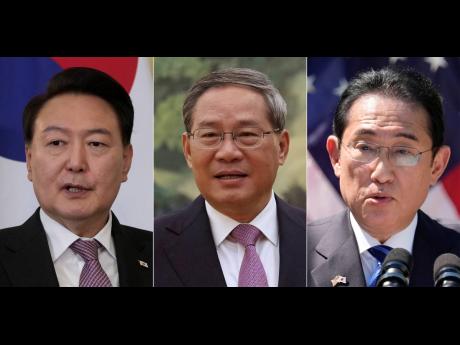Leaders of South Korea, China, Japan to meet for first trilateral talks since 2019
SEOUL, South Korea (AP):
Leaders of South Korea, China and Japan will meet next week in Seoul for their first trilateral talks in more than four years, to discuss how to revive their cooperation, South Korea’s presidential office said Thursday.
After their inaugural stand-alone trilateral summit in 2008, the three countries’ leaders were supposed to hold such a meeting every year. But the summit has been suspended since the last one in December 2019, in China, because of the COVID-19 pandemic and often complicated ties among the Asian neighbours.
The trilateral meeting between South Korean President Yoon Suk Yeol, Chinese Premier Li Qiang and Japanese Prime Minister Fumio Kishida will take place in Seoul on Monday, Kim Tae-hyo, Seoul’s deputy national security director, told a news conference.
Chinese President Xi Jinping will not be attending.
Li and Kishida were scheduled to arrive in South Korea on Sunday. They will meet Yoon individually on Sunday afternoon before attending a welcoming dinner banquet with the South Korean president, Kim said. Japanese officials said a bilateral meeting between Kishida and Li remains undecided.
“This summit will be a turning point for Korea, Japan and China to completely restore and normalise three-way cooperation systems,” Kim said.
Kim said the three leaders were expected to discuss cooperation on six South Korea-proposed topics — personnel exchanges, climate change, trade, health and ageing population, technology and disasters. He said these discussions will be included in a joint statement after their summit.
Kim said the three leaders will also discuss unspecified regional and international political issues and how to respond together to a global poly-crisis and contribute to international peace. Japan’s chief cabinet secretary, Yoshimasa Hayashi, said the three leaders share responsibility for regional peace and prosperity so their meeting is important for the entire region.
Closely linked economically and culturally with one another, the three countries together account for about 25 per cent of the global gross domestic product. But efforts to bolster trilateral cooperation often become snagged because of a mix of issues, including historical disputes stemming from Japan’s wartime aggression and the strategic competition between China and the United States.

